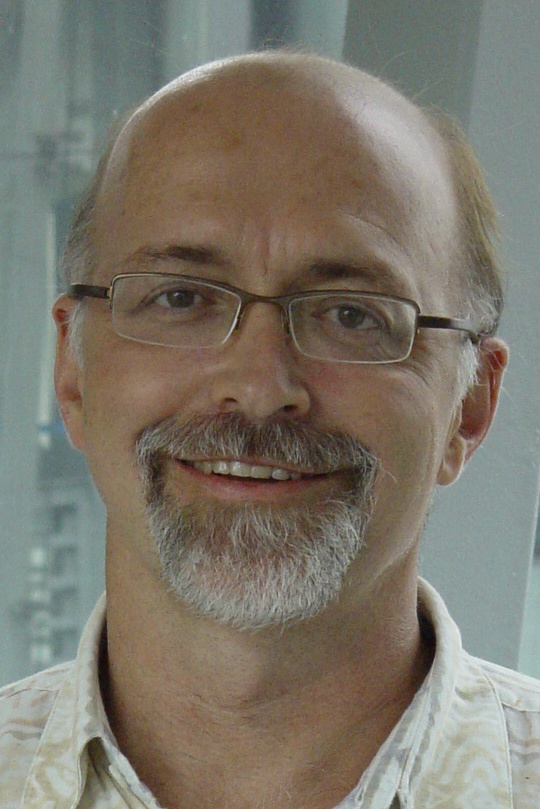
Associate Professor Neil Clarke received his BS in Molecular Biophysics and Biochemistry in 1980 from Yale University. He completed his PhD in Biology in 1987 at Massachusetts Institute of Technology. Assoc Prof Clarke was formerly Senior Group Leader in Computational and Systems Biology and Deputy Director of the Genome Institute of Singapore. Prior to moving to Singapore in 2005, he was an Associate Professor of Biophysics and Biophysical Chemistry at the Johns Hopkins School of Medicine, where he had been since 2002.
Assoc Prof Clarke served as Head of Studies for Life Science at Yale-NUS College from 2013-2018, and for three years served as Rector of Cendana College, one of three residential colleges at Yale-NUS.
Assoc Prof Clarke’s current interests are in the genomics and physiology of green algae. His work is motivated by the potential for algae to be used as ‘green’ feedstocks for fuels and chemicals. Assoc Prof Clarke is currently working with a model species and a species that he selected from a transcriptome survey of nearly 200 strains.
Assoc Prof Clarke brings a broad background in molecular biology to his research and teaching. He started off as a bacterial geneticist and molecular biologist, moved on to becoming more of an enzymologist, before becoming a crystallographer and computational biologist. With the advent of genome sequences, Assoc Prof Clarke is now a systems biologist, with particular interest in the analysis, prediction and modelling of protein-DNA interactions in vivo. His experiments at that time were conducted with yeast (S. cerevisiae). When he moved to the Genome Institute of Singapore in 2005, Assoc Prof Clarke continued to work with yeast and also started to provide collaborative computational support to colleagues working in cancer, embryonic stem cells, and early mammalian development.
After making the move to focus on algae research a few years ago, Assoc Prof Clarke is busy documenting his initial work.
Selected publications:
One Thousand Plant Transcriptomes Initiative*. (2019) A Phylogenomic View of Evolutionary Complexity across Green Plants. Nature. 574: 679–685 *[193 authors, most alphabetical]
Goh, F. Q. Y. , Jeyakani, J., Tipthara, P., Cazenave-Gassiot, A., Ghosh, R., Bogard, N., Yeo, Z., Wong, G.K-S., Melkonian, M., Wenk, M.R., and Clarke, N.D. Gains and losses of metabolic function inferred from a phylotranscriptomic analysis of algae. Scientific Reports 9, 10482 (2019).
Goh FQY, Jeyakani J, Cazenave-Gassiot A, Tipthara P, Wenk M, and Clarke, ND. Core features of triacylglyceride production in Ettlia oleoabundans revealed by lipidomic and gene expression profiling under distinct induction conditions. Algal Research 26, 453–462 (2017).
Aow, JSZ, Xue, X, Run, J.-Q, Lim, GFS, Goh, WS, and Clarke, ND. (2013). “Differential binding of the related transcription factors Pho4 and Cbf1 can tune the sensitivity of promoters to different levels of an induction signal”, Nucleic Acids Research. doi:10.1093/nar/gkt210
Wollmann, H, Holec, S, Alden, K, Clarke, ND, Jacques, P-É, & Berger, F (2012). “Dynamic deposition of histone variant H3.3 accompanies developmental remodeling of the Arabidopsis transcriptome”, PloS Genetics 8(5), e1002658
Clarke ND. (2010) “Protein engineering for bioenergy and biomass-based chemicals”. Curr Opin Struct Biol (2010) 20:527-532
Guo G, Huss M, Tong GQ, Wang C, Sun LL, Clarke ND, Robson P (2010) “Resolution of cell fate decisions revealed by single cell gene expression analysis from zygote to blastocyst”, Developmental Cell 18(4):675-85
Goh WS, Orlov Y, Li J, Clarke ND (2010) “Blurring of high-resolution data shows that the effect of intrinsic nucleosome occupancy on transcription factor binding is mostly regional, not local”, PLOS Comp Biol 6 : e1000649.
- Scientific Inquiry 1
- Integrated Science 2/3
- Quantitative Reasoning
- Foundations of Science
- Research Seminar for Life Science


